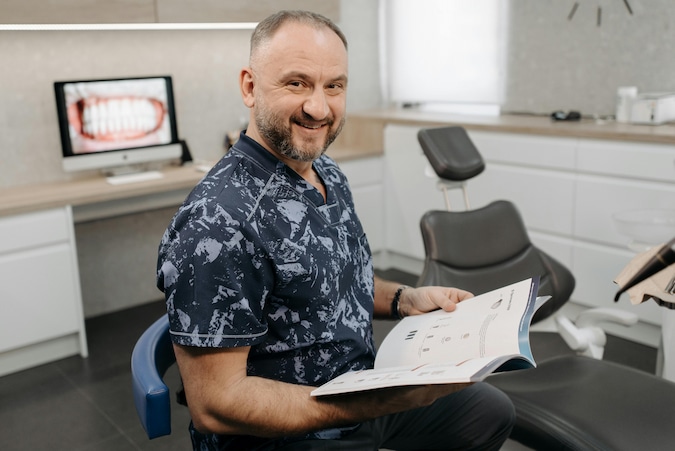
The Importance of Early Dental Care for Children

Ensuring early dental visits for your child is essential for lifelong oral health. Pediatric dentists recommend the first checkup by age one to prevent decay and establish good habits. At SelfGood, we understand the importance of early preventive care, which can make a significant difference in your child’s well-being. Visit SelfGood for comprehensive resources, including health and dental insurance options to support your family’s needs.
Early dental care is critical for your child’s overall well-being. Starting visits by age one helps prevent cavities, builds familiarity with the dentist, and educates parents on proper oral hygiene. SelfGood provides expert resources to help families make informed decisions about their child’s healthcare, including dental coverage.
Key Takeaways:
- Early dental visits are recommended by age one.
- Prevents cavities and addresses oral health issues early.
- Reduces dental anxiety by building a positive experience.
- Parents gain guidance on oral hygiene and diet for kids.
When Should Children First Visit the Dentist?

Pediatric dental associations, such as the American Academy of Pediatric Dentistry, suggest that children should have their first dental visit by age one or within six months of their first tooth erupting. This early visit is essential for setting a strong foundation for lifelong oral health.
A child’s first dental visit is crucial for assessing the growth and development of their teeth and gums. Waiting too long may lead to preventable issues like cavities or misalignment that require more invasive treatments later. During this initial visit, parents learn about brushing techniques, teething tips, and what to expect in the coming years.
Why This Timing Matters
The first visit is more than a simple checkup. It’s an opportunity to establish trust and comfort with the dentist. It also enables the dentist to catch any potential problems early, like baby bottle tooth decay, which can develop rapidly. Understanding how to care for a child’s teeth early makes a huge impact on oral health.
Why Are Early Dental Checkups Crucial?
Preventing Tooth Decay Early On
Tooth decay is one of the most common childhood diseases, but it is also preventable. Early dental visits allow dentists to spot cavities before they worsen, which can save your child from pain and infection. Regular monitoring of teeth helps keep decay at bay and ensures healthy development.
Building a Positive Relationship with the Dentist
Establishing a comfortable relationship with the dentist at a young age reduces the likelihood of dental anxiety in the future. Children who start seeing the dentist early become familiar with the office and procedures, making them less fearful. This positive experience creates a strong foundation for a lifetime of good oral care.
Setting Up Healthy Dental Habits
Good oral hygiene starts at home, but early checkups are a great way for parents to receive expert guidance. Pediatric dentists can show proper brushing and flossing techniques and recommend tooth-friendly diets. These early lessons help shape lifelong habits, setting children up for healthier teeth and gums.
Common Dental Issues in Young Children
Baby Bottle Tooth Decay
Baby bottle tooth decay occurs when a child’s teeth are frequently exposed to sugary liquids, such as milk or juice, especially during bedtime. This decay can be severe, causing pain and infection. Pediatric dentists provide strategies to avoid this, like switching to water for nighttime bottles and wiping gums with a damp cloth.
Teething Challenges and Dental Development
Teething can be uncomfortable, causing irritability and sleepless nights. Dentists help parents understand what’s normal and how to soothe sore gums. They also monitor dental development, ensuring that teeth are coming in correctly and that there are no alignment issues that might require attention later.
Thumb-Sucking and Pacifier Use
Thumb-sucking and pacifier use are natural comforts for infants, but prolonged use can lead to dental misalignment and bite problems. A dentist can give parents tips on reducing these habits before they impact oral health. The earlier the intervention, the easier it is to make corrections.
Benefits of Early Dental Care for Long-Term Health
Early Detection of Potential Dental Problems
Dental problems identified early are often easier and less expensive to treat. For example, catching signs of an abnormal bite or jaw alignment early on allows for simpler interventions. Regular checkups ensure that your child’s teeth and mouth are developing properly.
Education for Parents
Dental education is key for parents. Dentists teach parents about brushing techniques, choosing the right toothbrush, and using fluoride correctly. They also advise on nutrition, explaining how sugar affects teeth and offering ideas for healthier snack options. Educated parents can better support their child’s oral health journey.
Lowering Dental Anxiety for Future Visits
A familiar and friendly environment at the dental office makes future visits less stressful. Children who start early and have positive experiences with their dentist are more likely to continue regular dental checkups as they age. This familiarity leads to lower dental anxiety and better overall oral health.
How Parents Can Prepare for Their Child’s First Dental Visit

Choosing the Right Pediatric Dentist
Look for a dentist who specializes in treating young children. Pediatric dentists are trained to work with kids and make the experience enjoyable. A child-friendly office, complete with toys and engaging staff, can make a significant difference. Reading online reviews or getting recommendations from friends can be helpful.
Preparing Your Child Mentally and Emotionally
Talking to your child about the dentist in a positive way can help set expectations. Use fun, simple language to describe the visit and practice pretend dental checkups at home. Avoid negative words like “pain” or “hurt.” Storybooks and videos about dentist visits can also be effective in easing any worries.
What to Expect at the First Visit
The first visit usually involves a gentle examination of the mouth, teeth, and gums. The dentist may clean the teeth if needed and will discuss your child’s dental development, teething, and brushing habits. Parents should feel free to ask questions and share any concerns about their child’s oral health.
Establishing Good Oral Hygiene at Home
Brushing Techniques for Babies and Toddlers
Clean your baby’s mouth with a soft, damp cloth even before teeth emerge. Once teeth appear, use a baby toothbrush with a rice-sized amount of fluoride toothpaste. Brush twice a day and make it a fun, engaging activity. Singing songs or using a reward chart can motivate toddlers to cooperate.
Diet and Its Impact on Dental Health
Diet plays a huge role in dental health. Limit sugary drinks and snacks, as sugar is a major cause of tooth decay. Encourage nutritious, tooth-friendly options like fruits, vegetables, and dairy products that strengthen teeth. Water is the best beverage choice for healthy teeth, especially between meals.
Role of Fluoride in Protecting Young Teeth
Fluoride helps strengthen enamel and prevents cavities. Ask your dentist if your child is getting enough fluoride, either through water or toothpaste. They may recommend fluoride treatments or supplements if your child is at high risk for decay.
Final Thoughts
Early dental care is an investment in your child’s long-term health. By starting dental visits by age one and establishing good oral hygiene habits at home, you’re setting your child up for a lifetime of healthy smiles. Remember, a positive, proactive approach makes all the difference.
Frequently Asked Questions
When should my child start using toothpaste, and how much?
Children should use fluoride toothpaste as soon as their first tooth appears. Use a rice-sized amount for children under three and a pea-sized amount for those three and older.
What should I do if my child has dental anxiety?
Normalize dental visits with positive language and practice pretend checkups. Books and videos about visiting the dentist can also help make the experience fun and familiar.
How can I prevent cavities in baby teeth?
Practice good oral hygiene, limit sugary snacks, and make sure your child has regular dental checkups. Avoid putting your baby to bed with a bottle of milk or juice.
Sources:
- American Academy of Pediatric Dentistry. (n.d.). Age One Dental Visit Guidelines. Retrieved from https://www.aapd.org
- Centers for Disease Control and Prevention. (n.d.). Preventing Cavities in Young Children. Retrieved from https://www.cdc.gov
- Mayo Clinic. (n.d.). Teething and Baby Teeth Care. Retrieved from https://www.mayoclinic.org



